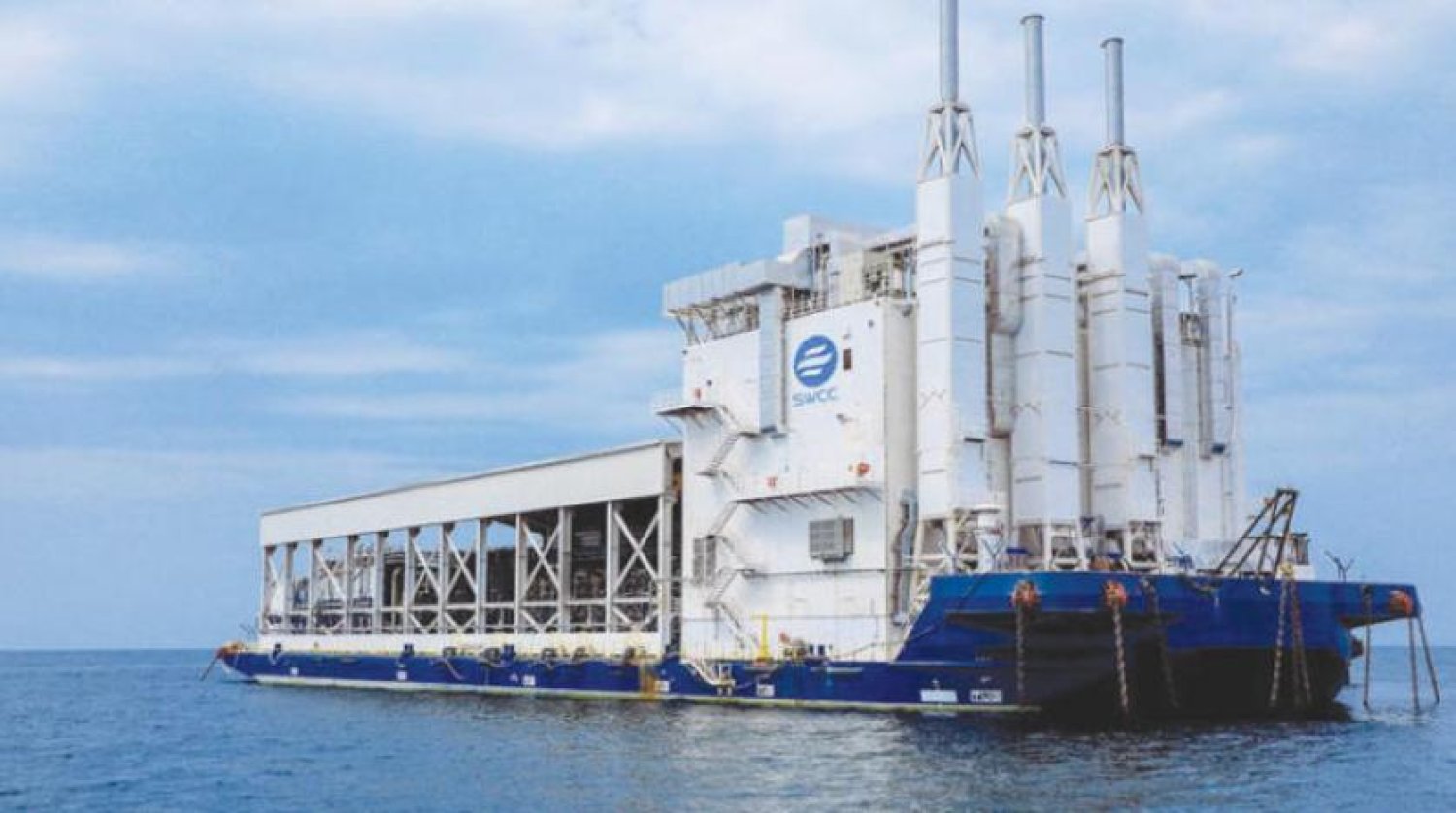Saudi Arabia inaugurated the first floating desalination plant near al-Shuqaiq port on the western coast, as part of its water projects to enhance water security in all the Kingdom's regions.
Governor of Jazan Prince Mohammad bin Nasser bin Abdulaziz inaugurated the station in the presence of Minister of Environment, Water and Agriculture Abdul Rahman al-Fadhli, Saline Water Conversion Corporation (SWCC) governor Abdullah al-Abdulkarim.
The plant is an integrated project to generate electricity and supply the grid in the southern cities with energy.
The project is part of the privatization program, where the private sector will do the design, construction, and operation for 25 years.
The station is operating according to reverse osmosis, the leading technology for desalination of brackish water and seawater, and is equipped with a massive farm of solar panels to reduce oil dependency.
Bahri signed an agreement with SWCC to transport desalinated water from three floating stations to desalination tanks in Saudi Arabia for 20 years.
The barges would be transported according to the needs of each region across the Kingdom, ensuring consistently high availability levels and compliance with all applicable international and local codes and standards.
Once operational, each station will have a capacity of 50,000 cu m per day with a total capacity of 150,000 cu m a day.
The project will support the construction of floating water desalination plants to produce clean and safe water daily independently and reliably that supports and preserves marine life.
It will also support the promotion of innovation, the localization of the latest technologies, the empowerment of local content, and the provision of job opportunities for young people.
The project promotes the capabilities of the industrial sector in the country, maximizing its contribution to the total added value and making it more active and competitive.
SWCC seeks to boost its contribution by making a qualitative shift in the local content, encouraging national industries, and maximizing the business sector's contribution to economic development.
Abdulkarim said that SWCC receives unlimited support from the government to advance the most important factors of sustainable development and provide desalinated water.
He indicated that this achievement is within the National Water Strategy and aims to secure water resources under constant follow-up by the Minister of Environment, Water and Agriculture.
The governor stressed that the adopted high-efficiency technologies and increased production capacity would advance growth in the national economy.
For his part, the CEO of Bahri Abdullah al-Dubaikhi stated that this step is a significant achievement in terms of efforts towards business diversification in line with the long-term strategy that supports Vision 2030 to enhance national capabilities.
Dubaikhi stressed that the partnership with SWCC is a qualitative leap in this field at the regional level, noting that the expertise of Bahri will contribute to supporting the project and its implementation following the best international standards.
















